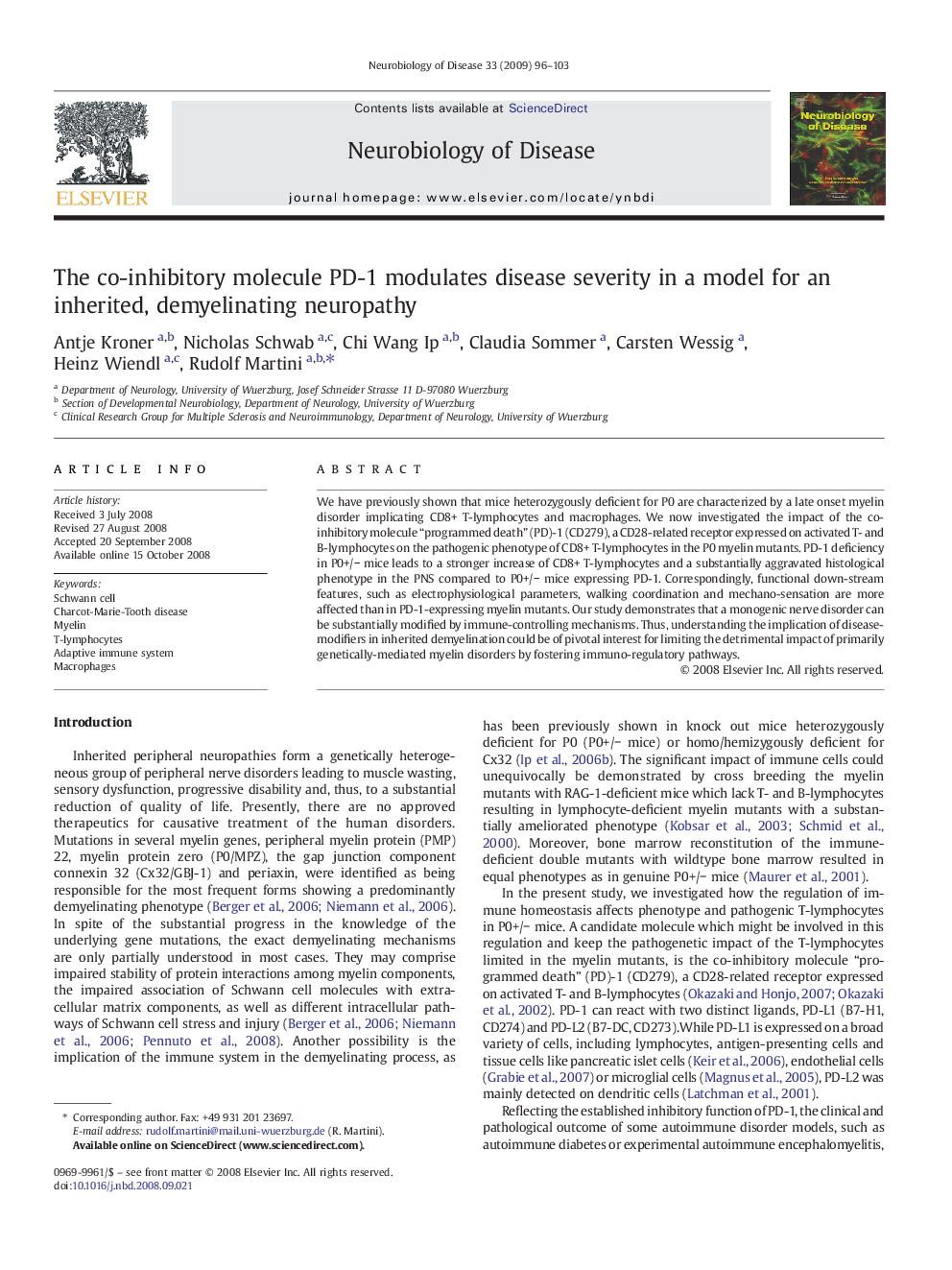| Article ID | Journal | Published Year | Pages | File Type |
|---|---|---|---|---|
| 3070304 | Neurobiology of Disease | 2009 | 8 Pages |
We have previously shown that mice heterozygously deficient for P0 are characterized by a late onset myelin disorder implicating CD8+ T-lymphocytes and macrophages. We now investigated the impact of the co-inhibitory molecule “programmed death” (PD)-1 (CD279), a CD28-related receptor expressed on activated T- and B-lymphocytes on the pathogenic phenotype of CD8+ T-lymphocytes in the P0 myelin mutants. PD-1 deficiency in P0+/− mice leads to a stronger increase of CD8+ T-lymphocytes and a substantially aggravated histological phenotype in the PNS compared to P0+/− mice expressing PD-1. Correspondingly, functional down-stream features, such as electrophysiological parameters, walking coordination and mechano-sensation are more affected than in PD-1-expressing myelin mutants. Our study demonstrates that a monogenic nerve disorder can be substantially modified by immune-controlling mechanisms. Thus, understanding the implication of disease-modifiers in inherited demyelination could be of pivotal interest for limiting the detrimental impact of primarily genetically-mediated myelin disorders by fostering immuno-regulatory pathways.
